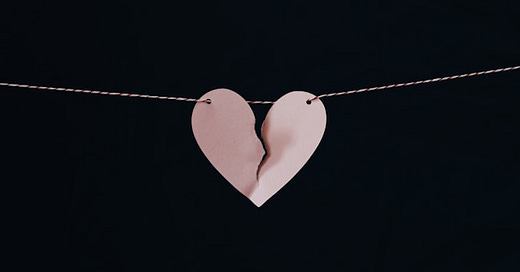What We've Lost by Over-sexualizing Male Friendship
One-hundred years ago, men customarily wrote each other letters, used words of affection for one another, and even slept in the same bed while travelling. No one would have even suggested anything by these actions but male friendship. In fact, in some churches, friends would publicly vow before the church to befriend one another. Now, however, most of these actions seem overly sexual and men avoid them. But in so doing, it seems that something has been lost, namely, the ability for intimate male friendship. David and Jonathan loved each other, hugged, and wept with each other. John laid upon the bosom of Jesus during the Last Supper. This is what friends did. Not so today.
Of course, the way in which we show friendship changes over time. I do not think we have to somehow go back to 18th century standards of friendship! Rather, here I want to discuss very briefly the effect of an overly-sexualized view of male affection. That is: men used to freely show love and kindness to one another because that is what friends did. Today, that openness seems utterly lost because it seems to mark a sexual advance.
The transition from what I call open male friendship to closed friendship seems tied to a larger movement that has come to see one’s identity as directly tied to one’s sexuality. To be human is to identify as a sexual being. The obvious candidate here is LGBTQ+, but it goes further than that. Many now make sure to identify in their social handles their pronouns. To be a straight-white male is now a familiar category. Every advertiser and TV program knows that sex sells. Love and sexual fulfillment play key roles in most pop culture, including its magazines, Instagram influencers, and music. Sex really does seem at the center of what it means to be human. So it seems entirely normal for people today to see male affection as sexual. It is baked into what we think humans are.
But with this change has also come a loss of male friendship—something which men everywhere will readily admit. Keeping close male friendships just seems hard. It is. Intimacy makes a bond, but we no longer have access to male intimacy because it seems sexual. We avoid it. We do not have strong bonds.
In place of intimate male friendship, we have attempted to create patterns of masculinity, I suspect, to fill the void. These rules of masculinity ban hugging, laying upon breasts, and kissing each other (with a holy kiss!). That is not masculine. It was fine for John, Jesus, David, and Jonathan. But not for us, I suppose. Mind you, I am okay with this ban. But then again: what have I, a male, lost? What sorts of friendships have not been available to me? What have I lost?
In place of friendship, we get the new rules for men to “bond.” We are tough, stoic, and sportsmanlike. Effusive words of tender love no longer have their place, since that is not masculine. But read any letters from friends in the 19th century and earlier. You will be shocked! It’s the kind of fodder that queer theorists love to exploit in an a-historical mode.
The masculine code today is all Macho Man Randy Savage, and it puts to death any so-called effeminate traits in men. But does a lack of masculinity really define the problem? What if it’s a lack of humanity? All the elimination of love, kindness, generosity of spirit, and words of tenderness that friends have historically shared—what if we lack those? What if that is the hole in our masculinity because it’s the hole in our humanity of which a male is part?
What have we lost? Much, I suspect.
[wp_paypal_payment]









